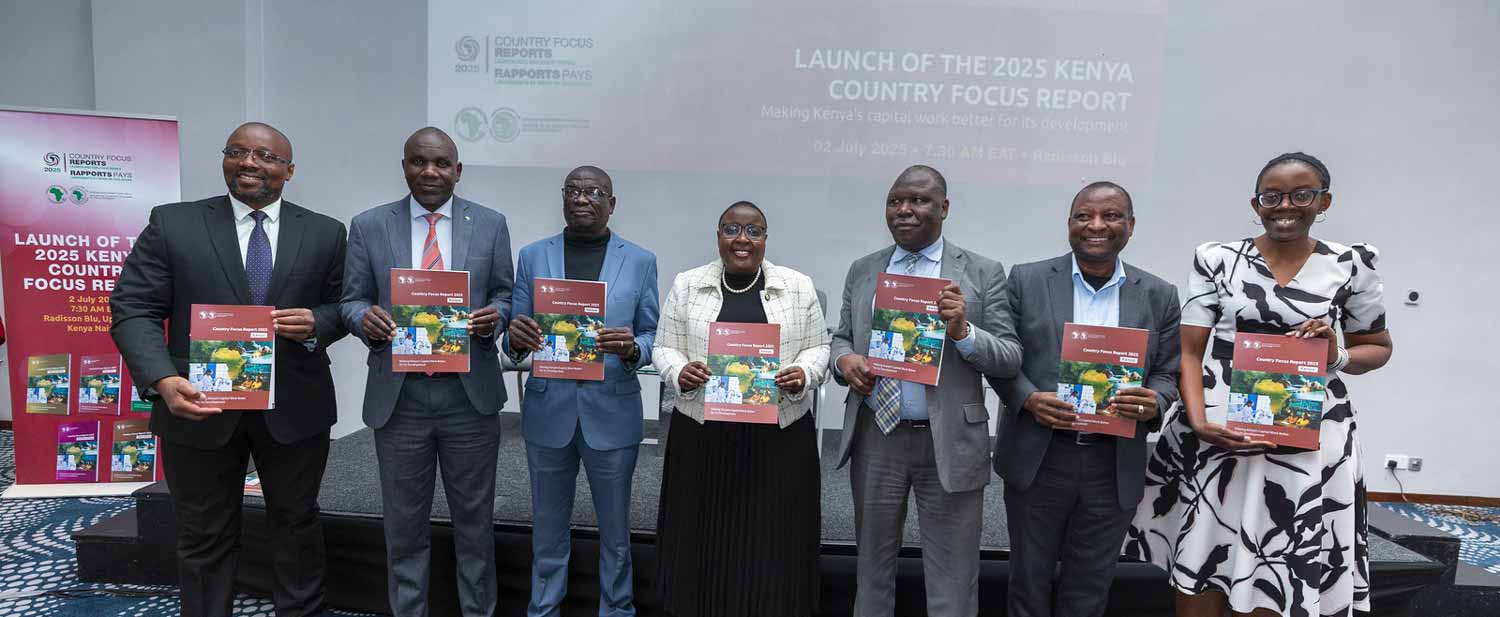

Kenya is losing billions of shillings annually through corruption, illicit financial flows and entrenched state capture, undermining its economic growth and social development, the African Development Bank has said.
In the Kenya Country Focus Report 2025, the bank warns that systemic governance failures are costing the country the equivalent of five per cent of its gross domestic product every year.
The report, titled ‘Making Kenya’s Capital Work Better for its Development’, says Kenya loses about Sh194 billion ($1.5 billion) annually due to graft, misuse of public resources and capital flight.
This is compounded by inefficiencies in public spending amounting to Sh650 billion annually, and tax exemptions and incentives that drain another Sh105 billion each year.
“Corruption and illicit financial flows cost the East African nation as much as $1.5 billion annually — funds that could transform health, education and infrastructure development,” AfDB said in the report.
Kenya has achieved macroeconomic gains, chief among them a stronger shilling and lower inflation that President William Ruto has cited as positive indicators of the economy.
However, weak governance and entrenched corruption continue to erode investor confidence, undermine growth and derail progress towards the attainment of SDG targets.
The report notes that through state capture, the political elites influence law-making, regulation and enforcement to serve private interests.
“The bank points to state capture, where political elites influence law-making and enforcement as a major barrier to reform,” the AfDB report says.
“This trend weakens the legal environment, discourages investors and creates uncertainty that stifles economic progress.”
The study further adds that potential investors fear “biased rulings, delays and lack of transparency”, pointing to how weaknesses in the Judiciary and oversight institutions are fuelling graft and deterring investment.
In its 2022 election manifesto, the Kenya Kwanza administration had promised to set up a quasi-judicial Commission of Inquiry into State Capture within 30 days of getting power, a pledge that has gone cold.
Kenya ranked 121st out of 180 countries in the 2024 Transparency International’s Global Corruption Perceptions Index, scoring 32 out of 100 (where 100 means very low perception of corruption and 0 highly corrupt).
On illicit financial flows, Kenya was grey listed by the Financial Action Task Force in February last year, and was added to the European Union's list of high-risk third countries for Anti-Money Laundering in June this year.
The AfDB’s report mirrors recent high-profile scandals, such as the Sh6.6 billion edible oil importation deal.
Appearing before the Senator Lenku Seki-led Trade Committee, leaders of the Kenya National Trading Company admitted that they spent Sh14.4 billion to import cooking oil but said they had to sell it at a lower price.
KNTC acting MD Peter Njoroge told committee members the corporation lost money because it not only sold the oil at a lower price but also due to fluctuations in the dollar exchange rate.
Similarly, the Sh10 billion medical supplies scandal at Kemsa exposed how politically connected firms were awarded contracts for Covid-19 related goods that were either overpriced or never delivered.
Despite public outrage, there have been no prosecutions yet.
In 2023, the Global Fund cancelled a tender that Kemsa was to award for the supply of mosquito nets, citing procurement irregularities.
The tender was reportedly worth Sh3.7 billion and was among the accusations levelled in the impeachment proceedings of former DP Rigathi Gachagua.
He denied accusations that he tried to influence the award of the tender.
Other scams that have been reported include the subsidised fertiliser programme mess and the acquisition of the Sh104 billion Social Health Authority’s digital health system that was procured under opaque single-sourcing process.
Additionally, audits in August revealed fraudulent claims under SHA worth Sh10.6 billion, with money flowing into non-existent hospitals and fake patient claims.
The AfDB estimates that corruption, waste and state capture have pushed Kenya further away from achieving its 2030 SDG targets.
The country faces a financing gap of about $12.5 billion (Sh1.6 trillion) to meet the goals. Plugging the leakages could close a significant portion of that gap, it said.
The report warns that unless governance failures are addressed, Kenya’s projected 5.3 per cent GDP growth in 2025 will not translate into equitable development.
To curb the haemorrhage, the AfDB calls on Kenya to tighten public spending controls, reduce discretionary tax exemptions, strengthen oversight institutions and insulate them from political interference.
It also urges action against illicit financial flows and more transparent procurement systems, arguing that the rule of law and judicial independence are essential to restoring public trust.
“Ultimately, the rule of law, upheld by robust law enforcement and an independent judiciary, remains the foundation for sustained economic growth, social equity and public trust in governance,” the AfDB said.
















